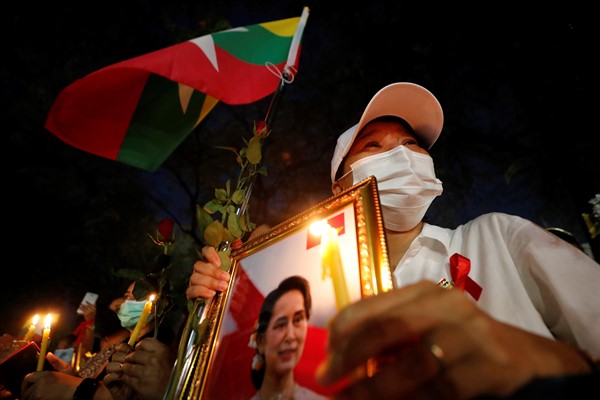On the first day of February last year, the world woke up to the news that the generals in Myanmar, also known as Burma, had seen enough of the country’s fledgling experiment in democracy. Military forces had arrested the country’s iconic pro-democracy figure and de facto leader, Aung San Suu Kyi, along with more than a hundred other elected officials. Outraged, the people took to the streets, catching the Tatmadaw, as the military is called, by surprise.
Unfortunately for the people of Myanmar—and perhaps by the generals’ design—the timing of the coup made it difficult for international attention to focus sharply on reversing the military’s direct assault on democracy. At that point in 2021, the entire world was in the middle of the deadliest wave of the coronavirus pandemic, with all the illness and political turmoil that engendered. The United States had also just suffered its own insurrection by backers of former President Donald Trump. Although the world condemned Myanmar’s coup, and though both the United States and Europe imposed sanctions against its perpetrators, the drama in Naypyidaw ranked low on the list of national priorities just about everywhere outside the country. That was true for governments, businesses and citizens alike.
But now, the people of Myanmar, who have waged a relentless campaign to overturn the military’s rule, are hoping to see the international community engage in a more focused, more effective campaign of support.

